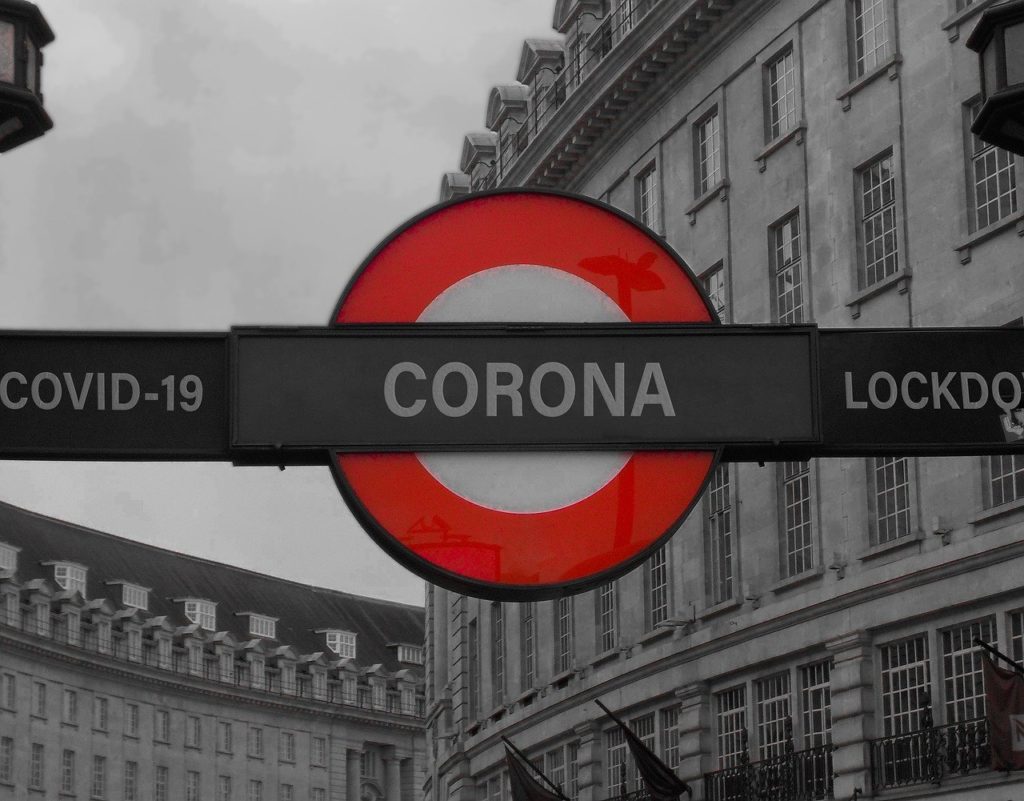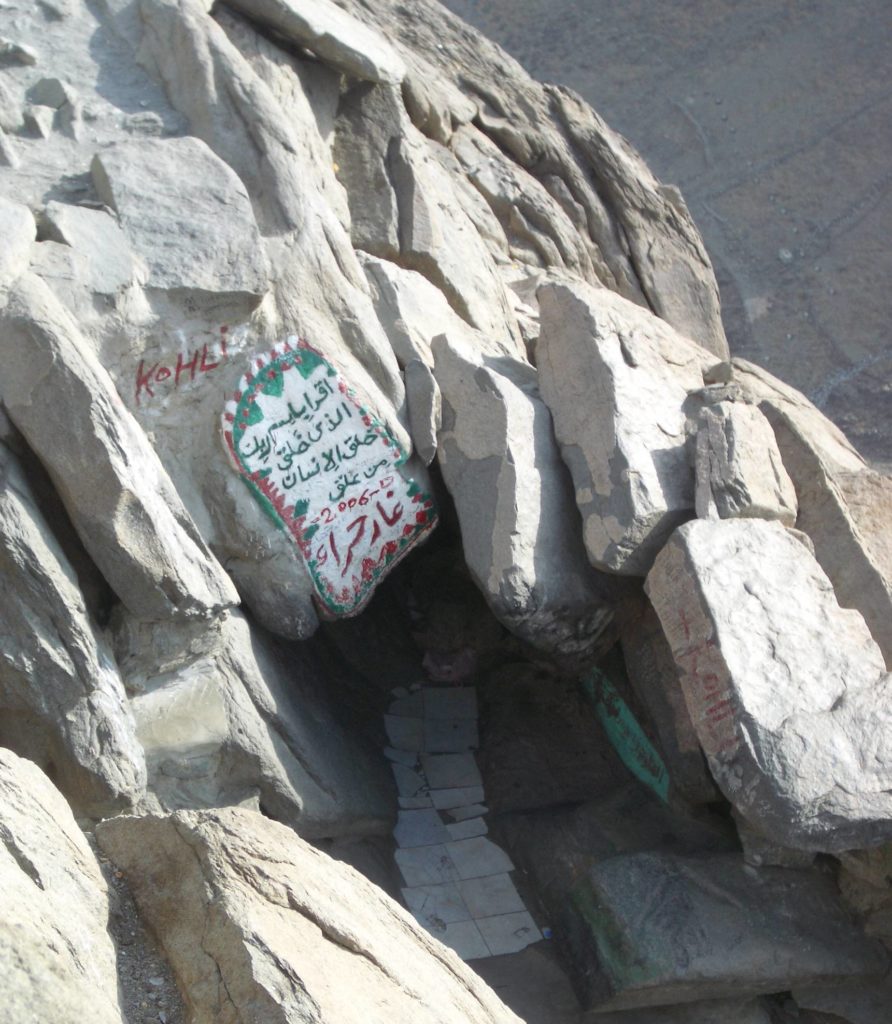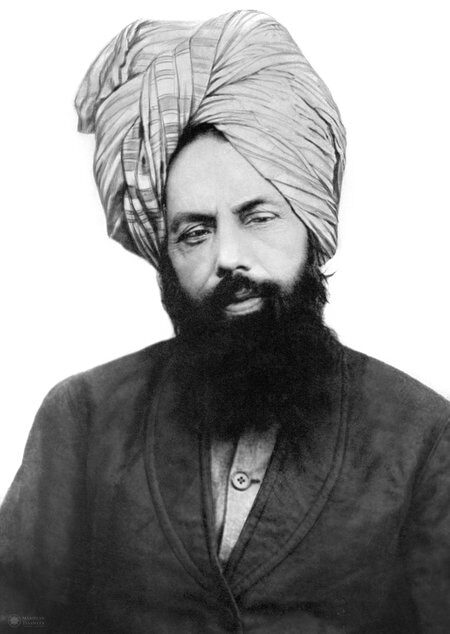Asif M Basit

As coronavirus continues to freely and swiftly spread beyond man-made borders, people are being asked to self-isolate or are being made to isolate. Major cities have been put into lock-down and human population is shut behind their front-doors – a situation that none of us had ever imagined.
Modern and liberal human population is shocked at what they are being asked to do; “How dare someone tell us to limit ourselves in confined spaces?” “Who on earth is coronavirus that limits our freewill?” “It’s my life and no one should be telling me to restrict my free movement in society!” All this and much more.
We leave modern man aside and go straight to the genuine concerns that one could have in a battlefield, where isolation happens to be the only defence strategy against an invisible enemy.
With schools shut and most people working from home, many are experiencing, for the first ever time in their life, what family life actually is like. Schools, colleges, universities, workplaces, targets, professional promotions and all such elements that make up modern day life have left the family unit – the basic unit of any society – fragmented.
A usual weekday morning has been known for the hustle and bustle of everyone rushing out of homes to places of work and educational institutes. Evenings have seen everyone come back. Some start cooking in the kitchen, some stay immersed in files from work and others put their heads down on their coursework and assignments that need to be submitted.
Expert advice in the wake of coronavirus has brought all this autopilot and automatic routine to a sudden halt. We all seem to have fallen off our seats and traumatised.
Welcome to life; life as it was for our ancestors, and that too not very long ago. Some have suddenly learnt to be thankful to housewives who have always worked from home, working harder than most of us.
Many will have their laptops open in their bedrooms, studies or living rooms, hearing the processor unit’s fan whirring, as they try to work from home. Others – school- and college-goers – have felt a burden get off their chest.
Netflix, Amazon Prime and other streaming facilities have become the most valuable asset for many of those in self- or otherwise isolation, with Wi-Fi routers constantly blinking at an all-time high speed.
Most of us – fond of our mobile phones any way – have fallen even more in love with them and are seeing them as the greatest blessing in these days of isolation, days that ask for solitude and lead to the grim feeling of loneliness. Others have set up “stay-at-home” challenges on social media to enliven the situation.
This is only a sneak peek into situations of household isolations, where the family is together but is having to stay indoors. Those asked to self-isolate of their own accord within four walls experience all the above more but with greater magnitude.

How disturbing, how painful and how excruciating it is to be on our own, away from society and all alone, even in the 21st century, an age where every moment of solitude can be filled with a surge of information, a massive outpour of means of entertainment, where one can call friends and family, connect with others through WhatsApp groups, like photos on Instagram and send LOLs to funny videos (and non-funny ones also) that come up as suggestions on our mobile phone-screens.
Human race went through countless epidemics and pandemics before modern-day science could advise quarantine and isolation as a precautionary measure. The concept might be novel for medical science, but not so for the world of Islam.
The advent of the Holy Prophet of Islam, Hazrat Muhammad, peace and blessings of Allah be upon him, happened at a time when society was enthralled in all sorts of social, moral and spiritual epidemics, spread at a similar scale, pattern and pace as that of a pandemic. Arabia was undoubtedly the worst affected, if not the epicentre of it all. The worst thing was that society had gone numb and could not even realise that they were struck so badly by evil.
This “pandemic” was at its peak when Allah chose a person from among the society of Arabia and turned him in to the best remedy for not only Arabia but for the whole world.
This chosen person had travelled up and down the Arabian Peninsula with trade caravans and hence, had quite a lot of exposure to be able to acquaint himself with that society like the back of his hand.

Born an orphan, having shifted from the care and guardianship of one relative to another, this young boy had seen enough grief in life already. To add to this grief, he found himself living in a world where infanticide, fornication, incest, slavery and prostitution was not only common, but highly encouraged – practices that certified masculinity and authority.
The young Muhammadsa would leave the comfort of his uncle’s home, climb the Mount of Hira and isolate himself in a small, dark cave. With very little food – enough only to keep him from starvation – he would isolate himself for many days. No one to talk to, no one to listen to, no sport and not enough space to walk even a few steps. All that was there was himself and a dark, small, rocky surrounding.
This self-isolation was a very lonely one; lonelier than we can imagine in this day and age.
He filled the long, wary hours of Arabian days and nights in expressing his grief before his Creator. He had faith that his Creator could not leave the world – his own creation – in such destitute circumstances. He believed that God would most certainly come to his help.
One day, as the Holy Prophetsa poured his heart out in pain for the human race, there appeared in the cave all that was always missing: comfort, company and communication. There appeared light from within the darkness of the cave. The light entered the bosom of the Holy Prophetsa, who then came out of this self-isolation. He was commissioned by Allah the Almighty to enlighten the whole world with this light.
As we go through these times of isolation in this tech-savvy world, let us remember that our beloved prophet, Hazrat Muhammadsa too went into isolation. Let us not forget that he was on his own and had no communication with the outside world. Let us bear in mind that the weather conditions could not be controlled as they can be today, with air conditioners, fans and heaters. Yet, he opted for self-isolation.
Should we be able to imagine the pain that led the Holy Prophetsa into self-isolation, I am sure we will sail through the days of our isolation much more smoothly. Above all, we will find in his example, quite a few more activities to punctuate these days and nights of isolation.
The light that Allah sent into the bosom of the Holy Prophetsa was the Holy Quran. The Holy Quran is still there and there is no one from among us who can claim that they have understood it entirely. So there is actually quite a lot to do than laze around on couches and exhaust the offers of Netflix and Amazon Prime.
Let us move to a slightly closer time of history.
The same was the condition of the world when the Promised Messiahas was sent to the world by Allah the Almighty – only that time had moved 1400 years on.
The same was the pain that Hazrat Mirza Ghulam Ahmadas of Qadian, the Promised Messiah, felt when he saw the moral and spiritual decay of the world. The same was the agony that Hazrat Mirza Ghulam Ahmadas – the ardent follower and lover of the Holy Prophetsa of Islam – experienced, when he saw how the world was falling apart, but still not feeling the need to accept that there is a God. The same was his reaction to a world that was enveloped in the pandemics of atheism and disbelief.
Hazrat Mirza Tahir Ahmad, Khalifatul Masih IVrh very beautifully portrayed the state of society at the time of the advent of the Promised Messiahas:
جب دہریت کے دم سے مسموم تھیں فضائیں
پھوٹی تھیں جابجا جب الحاد کی وبائیں
“As the environment was poisoned with the breath of atheism, the pandemic of disbelief erupted in all places.”

So as the poisoned and poisonous winds of these pandemics picked full momentum – denying the last message of Allah – the Promised Messiahas went into self-isolation. He spent 40 days in isolation and, much like his holy master, Hazrat Muhammadsa, cried before Allah to show the world a sign that it could heed. The Promised Messiahas spent all these 40 days in complete isolation in a rural setting of 19th century Punjab, with no means of communication, no modern technology and no other pastime; every moment was devoted for prayer.
What ended this self-isolation was good news from Allah that signs would be shown. From the birth of a magnificent, extraordinary son to wars, earthquakes and pandemics; all this was to appear to prove that there is a God and He alone is Omnipotent. The Promised Messiahas wrote exhaustively on how calamities would engulf. His books span over 23 volumes.
What can we do to pay homage to the pain that drove him away from spiritual pandemics into a prayerful self-isolation? There is a lot we can do!
For now, let us try and read the insightful and enlightening works that he penned to make our days of isolation and distancing more productive.
While in isolation, let us try and be grateful for every comfort that surrounds us, no matter how seemingly insignificant or little. Let us name every little comfort that surrounds us in our houses, in our rooms, in our bathrooms and remind ourselves that the two great men mentioned above had none of these.
اَللّٰہُمَّ صَلِّ عَلَی مُحَمَّدٍ وَ عَلَی آلِ مُحَمَّدٍ وَ عَلَی عَبْدِہِ الْمَسِیْحِ الْمَوْعُوْدِ
(O Allah, bless Muhammadsa and the people of Muhammadsa and his servant, the Promised Messiahas.)


Excellent piece worth pondering over and over again.
In particular the actions during this time of ‘self isolation’ giving us all an opportunity how best we should use this God given TIME beneficially.
Of course offering the 5 daily Salat on time in congregation and study of the Holy Quran should be at the forefront.
Excellent, excellent, excellent! Jazakomullah ahsanaljaza for such an in depth, thought provoking, articulated piece of spiritual food.
Which surely shows there is good in every bad situation. We are now thinking whereas before were headlong to completing the day, every day.
Thank you for connecting our seemingly “self important” isolation to the real isolation that occurred on earth more than 1400 years ago then repeating it not so long ago.
May Allah grant us all the ability to succumb to His love and become His servants the way the Holy Prophet Muhammad (s.a.) desired and prayed incessantly. Ameen.
Alhamdolillah Rabbil Aalamin
Food for thought, we must have to use the time wisely. Well written Article, JazakAllah Ahsanul jaza.
Assalamo alaikum
Masha-Allah khubsurat likha hai
Amen Ya Rabbi Amen.
Rightly penned! May Allah the Almighty bless you for voicing your opinion.
That is all we need to do, pray to Allah, beseech Him as this is an excellent time to show devotion (in private).
Read the Holy Quran, books of the Promised Messiah (AS) and watch sermons of his Khalifa. We should get closer to Allah, our creator, and improve ourselves.
May Allah help all those hungry souls and guide them towards the right path. (Amin)
Reading this article while in self-isolation. It is indeed very sad to see that during this dark period, people are still hanging on to their phones while the best thing we could and should all be doing is praying and begging our Lord for His Mercy and Protection.
What a beautiful read. There wasn’t a more opportune time to have read this article than at the very outset of our lockdown. Also glad “Wi-Fi router wasn’t constantly blinking” whilst reading 😊.
Jazakomullah to the entire team of Al Hakam.
Jazakallah for sharing an excellent article. Makes you wonder if we did not have all these techno gadgets if the day would pass for everyone in self isolation.
I hope and pray that this pandemic will teach us to bring the family life together once again in western society and inshallah lead to more people praying to God almighty to overcome this plague like pandemic.